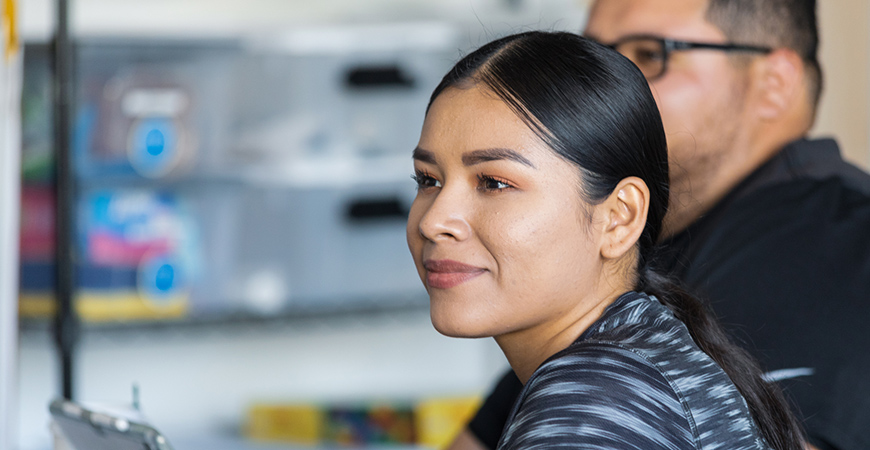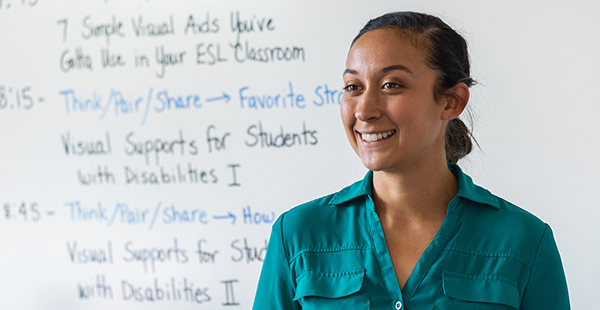
Nearly 1.2 million students in California are not native English speakers, many coming from Spanish-speaking households. Transitioning to an English-speaking classroom can be difficult for these students, but UC Merced’s Teacher Preparation Program is poised to remedy these challenges with its recent bilingual authorization.
The Teacher Preparation Program has made great strides in its relatively short existence. In just three years the program, which is run through UC Merced’s Office of Extended Education, has graduated more than 27 future teachers. The bilingual authorization will make future graduates even more valuable to schools in the Central Valley.
“There is a need in the Valley. In fact, we can’t put out teachers fast enough,” said Mari Harris, director of Education Programs at University Extension. “There is a need for the teachers we’re developing who understand technology and who come from the same background as many of the students they’re teaching.”
With increased retirements and the impact of COVID-19, there is a shortage of teachers in the state. To fill that gap, the governor temporarily postponed the need for future teachers to take standardized tests prior to entering a credential program. Students still must take the CBEST or CSET to be hired but can do so after they’ve been admitted to a teaching program — meaning they’ll have more context and support before the test.
“All of a sudden our gates were flooded,” Harris said, noting this change will especially benefit future teachers in the Central Valley where there is a large population of Black and brown students, who typically struggle more on standardized tests.

Students interested in pursuing the bilingual track will be required to complete two courses: “Bilingual Bicultural Teaching” and “Sociocultural Overview of the Spanish Fluent World.” In addition, they will be required to prove their proficiency in Spanish and pass the CSET in Spanish. The courses will be taught year-round by Jessie Ceja, principal of Chrysler Elementary School in Modesto.
“There are many benefits of having this authorization,” said Ceja, who will determine which students are qualified for the bilingual course through a fluency test. “I would say the greatest is the ability to teach in a dual-immersion setting. Due to the ever-changing global economy that we currently live in, the importance of being bilingual is multiplied. For this reason, it is important that we produce students that will have the bilingual and bicultural skills to be successful in the global society in which they will live and work. Currently, Spanish is the second most-spoken language in the world, and one could argue the most widely spoken language in California. Therefore, this authorization would give teachers the opportunity to teach in classes designed to produce truly bilingual/bicultural students.”
This fall will be the first cohort of students earning their teaching credential with bilingual authorization. The authorization is in line with Chancellor Juan Sánchez Muñoz’s goal of serving the local community. His Wife, Professor Zenaida Aguirre-Muñoz, is on the Curriculum Advisory Board (CAB) for the Teacher Preparation Program (TPP) and supported the approval of the curriculum for the bilingual authorization program.
“For our program to be only three years old and this to be the first thing we want to do outside of credentialing — you can see how important this is to us,” Harris said. “We want to take care of the community we’re serving.”
Those interested in learning more about the Teacher Preparation Program can attend a virtual information session from 6:30 p.m. to 7:30 p.m. on Tuesday, July 27. Registration is available online.



